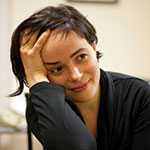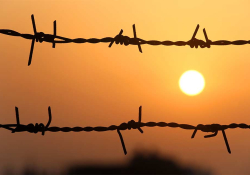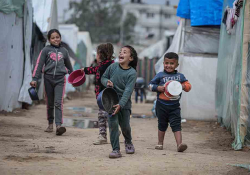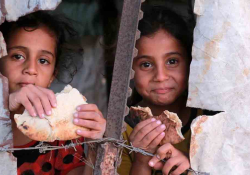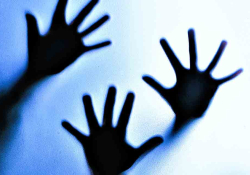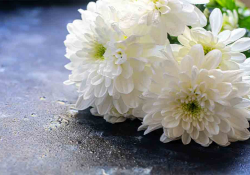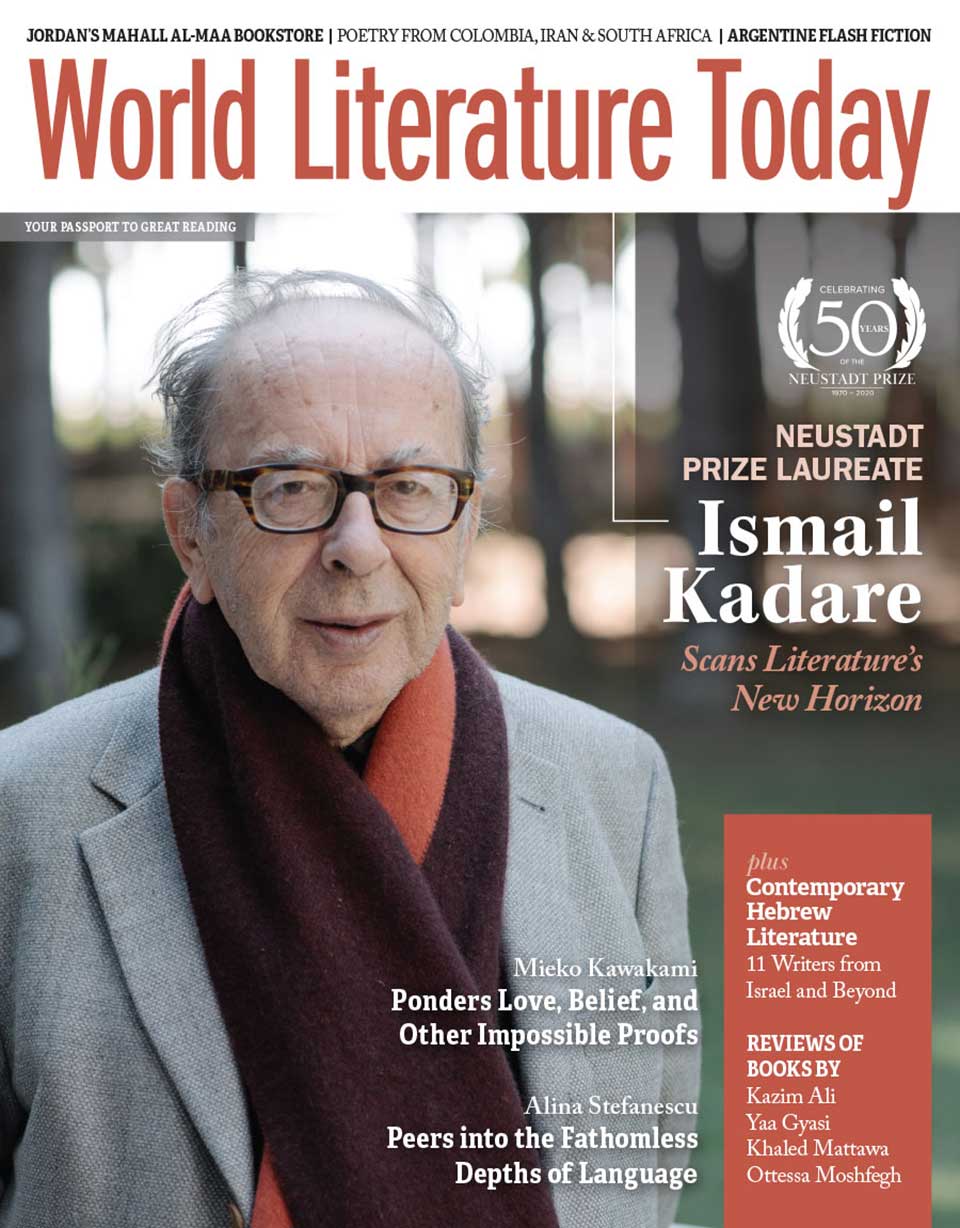Chicken Soup: The Story of a Jewish Family
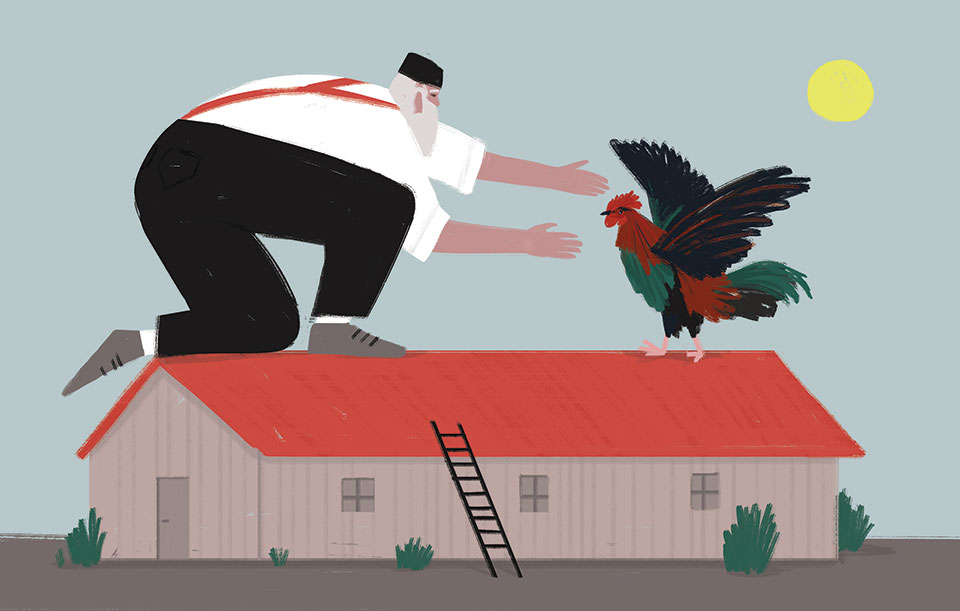
Chickens, from Bessarabia to New York City, provide a generational through-line in these four vignettes.
Popol
Twenty-three years after my last bowl of chicken soup, my mother mentioned in passing that she was once a vegetarian, too. “Why did you go veggie?” I wondered. “For the same reason that all these hypersensitive children do,” she said in her matter-of-fact way: “to piss off their parents.” It was back in the 1960s, right after her aunt from the settlement Kfar Vitkin visited her family in Haifa. She carried baskets with her on the bus—oranges and avocados, aluminum pots, jam, and a large metal basket with a rooster my mom named “Popol.” They kept him in the bathroom, and a few days later, Popol was taken to the slaughterer. My mom refused to have the soup.
It’s hard to determine what kind of a chicken Popol was, but it’s safe to assume that he was utterly different from those slaughtered by my great-grandfather, Moshe, back in the 1920s in Zikhron Ya’akov. Very few species have had as dramatic an evolution as Jews and chickens over the past two centuries. Popol and his peers from Kfar Vitkin were already kept in a modern “battery cage” in which the birds are crammed on top of each other. He was part of the post–World War II generation of industrial chickens that triumphed over a world with many mouths to feed. The chicken soup that nourished my mom and the rest of the baby boomers at their parents’ tables was the result of an organized effort of scientists and farmers who managed to reinvent the chicken as a highly efficient creature. Raising chickens, which took eighteen weeks from hatching to slaughter for Grandpa Moshe and Grandma Rachel in Zikhron Ya’akov in the early twentieth century, was shortened to eight weeks by the time my mother attended elementary school. As the global economy called for a more cost-effective and manipulative use of animals, the poultry industry flourished and chickens became the most prevalent domesticated animal on earth. By the time I attended elementary school, the chicken’s life cycle was even shorter. Today, roosters like Popol reach the age of slaughter in forty-two days.
I don’t know if I became a vegetarian to annoy my mother, but I probably became a historian to serve this exact purpose. All the old papers and tchotchkes that my mom would religiously throw out to “declutter the house” became part of my job. I have dedicated years to index cards and notes, trying to figure out the rapid changes of the meat industry over the last century. It’s not so much the blood that got me hooked on this research as the passage of time—you can’t manipulate chickens without manipulating time. This is why coops have artificial lighting systems, which changes chickens’ fertility cycle and their appetite. Chicks don’t sleep. They mature over one long, endless day, eating and eating until they are large enough to become food. So for me, having suffered from insomnia for over a decade, questions of time are compelling. How does time pass, and where does it go when the day ends?
“You’re not very good at making people talk. You don’t ask the right questions.”
“What should I ask?”
“Ask me where I can feel these memories in my body. My face, for example. I got my first slap in the face in that cabin in Zikhron Yaakov. From my mom.”
Moshe
Moshe Sverdlik was calm and erudite, an expert in delicate crafts such as writing and kosher slaughter. My mother, his granddaughter, received an inkstand and a fountain pen from him. She spent a week at their place in the summer. He knew how to slide his nail gently on the sharp blade of the knife. His handwriting was continuous and round like a string of pearls. He collected tens of thousands of proverbs and idioms from the ancient sages on index cards that later became a hefty, three-volume anthology. The fruits in their garden—mulberries and grapes and lemons—thrived on the blood. Grandma Rachel would make them into jam.
The chickens that Grandpa Moshe slaughtered were raised in the yards of the moshava houses. People would pick up eggs in the morning, and when it came time to slaughter one of the chickens, they would bring it to him. Sometimes they stayed for tea. The books in his library were marked with a rubber stamp that bore his full name—Moshe Sverdlik—but around the moshava they simply called him Moshe Shu”v, a Hebrew acronym for “slaughterer and inspector.”
In my family, blood ties are not necessarily hereditary. Grandpa Moshe and Rachel’s father, Rabbi Matityahu Morgenstern, were bound together as slaughterers. Despite the fact that Moshe’s father, Israel, was also a slaughterer, Matityahu was the one who immersed Moshe in the secrets of kosher slaughter. He presented him with the sharp knife. Before mCAMPO, Moshe practiced the craft on the bodies of chickens in his father-in-law’s yard, so that he could carry on the profession that sustained our family in Bessarabia: the sharpening of the knife, gliding the fingernail down the blade, plucking the plumage of the neck. The fingers slide over the chicken’s exposed neck to reveal the exact right place on the windpipe—only there, only with one sharp gesture. Careful not to rip the neck, not to saw back and forth, but to slash in one quick thrust.
When the men wrote to each other they signed, “Moshe Shu”v,” “Israel Shu”v,” “Yehiel Shu”v.” We were Shu”v from both sides of the family. They knew the Jewish laws of blood and slaughter. On the holidays, they would send cards that said: “May you have a happy life for the rest of your days.”
On her wedding day, Great-grandma Rachel was eighteen years old. Dolled up, her finger wrapped around her white-laced hand fan. It was only after she bore several children and turned almost thirty that they packed and left. On the carriage from Bendery, Bessarabia, to Palestine they took with them a knife, a whetstone, four children (one daughter died on the road), a few holy books, a silver spoon with the symbols of the twelve tribes of Israel, and a large carpet that spanned the living room and gave my mother terrible allergies. There was another son who did not join them but stayed in Bendery to become a communist. It was only after the fall of the Iron Curtain that they received a telegraph from his wife, informing them that he had died years earlier. When the news came, Grandpa Moshe’s anthology was already published and had won the Rabbi Kook Prize. For several other reasons, too, by then he was already ready to die.
He died at home like people used to. Nira, his granddaughter, said that it was a Friday, before the Sabbath, and so they couldn’t bury him. Instead, they got a block of ice and placed it in a metal linen drawer under the bed. This is how they kept him until the burial. Ice stops the flesh from turning. Ever since his death, there have been no more slaughterer-inspectors in our family.
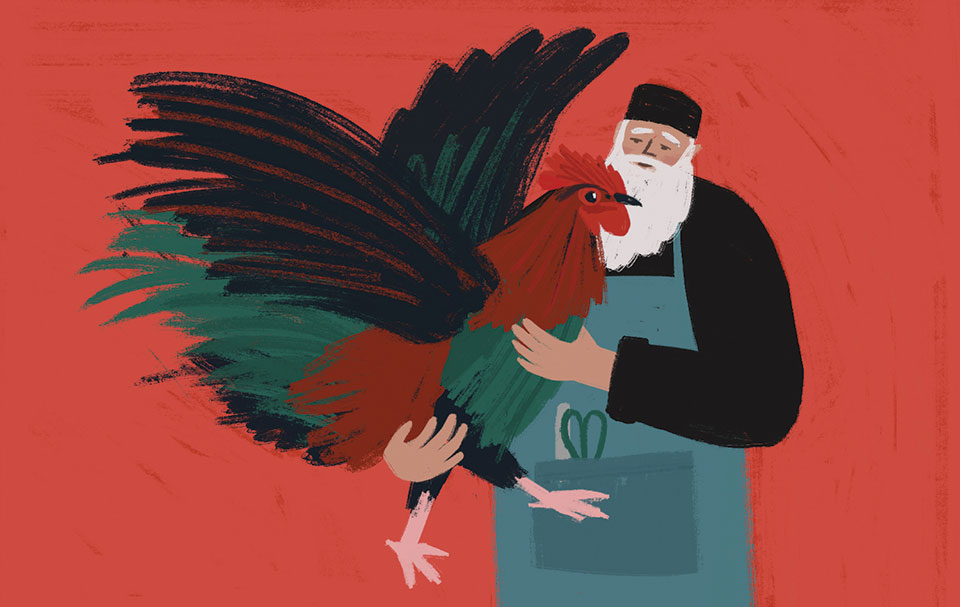
Yehiel
My family found it hard to decide how many plots we needed in Zikhron Yaakov’s cemetery. A Jew never knows when a new family member will turn up. Each knock on the door could bring a man with eyebrows like yours and an ulcer, who turns out to be a cousin. Each letter that arrives could inform you of someone with a high forehead and a side smile who once bore a child, who is also a relative. Someone who knows how to locate the windpipe with two fingers. Someone who collects tens of thousands of index cards. Someone who’s a Shu”v.
People arrived—Moshe’s sister, the cousin from Bendery. And children showed up too, from Russia or more private catastrophes. Nira, the granddaughter who liked feeding the chickens with breadcrumbs, was often at the house in Zikhron after her parents separated. The children said that Grandma Rachel was the World’s Best Chicken Soup Grandma. Steamy bowls were filled with the clear, boiling soup. Perfect golden droplets on the top, laced with tender fronds of green dill.
Yehiel never came. They didn’t even have a picture of him, only a pencil-drawn portrait. Underneath it was written: our uncle, our mother’s brother, the Poet-Slaughterer. People did such things, especially in Odessa, especially in 1900, especially at age twenty-one—wrote sentimental love poems about Jerusalem and the Hebrew language, longed for places they had never seen. Like all the slaughterers in our family, his nails were sharp from inspecting the knives.
Annie
Soon after the Covid-19 outbreak, meat prices in New York spiked. Whole aisles in the supermarket were empty. Chicken (wrapped in thick Saran wrap, placed in a plastic tray, ice stops the flesh from turning) became a precious commodity. I wandered through the emptying refrigerators to find the cuts that my son, who was born in the US and understands local cuisine like I never will, calls “drumsticks.”
Ice stops the flesh from turning.
The chicken we get in our local Manhattan grocery store comes from massive meat factories in Arkansas. The slaughterers there don’t sharpen knives on their nails; they handle heavy machinery. Repetitive muscle movements harm their joints, and the line speed causes severe injuries so often that human rights organizations have declared the American meat industry to be in ethical violation. Social distancing and sanitation are impossible on the crowded kill floor. Chicken slaughterers, most of them underpaid immigrants with no health insurance, fell ill by the tens of thousands. Many factories had to shut down or slow down production. In the meantime we, who see nothing of the blood and feathers and have no house guest named Popol, were ordered by giant supermarket signs not to buy more than three meat products, three toilet paper rolls, three packages of disinfectant wipes.
Meredith says that Annie arrived in the garden by chance. That someday someone brought her there. I don’t believe that such things really happen, that someone would just bring a chicken to a garden in vacant lot in Manhattan. But I won’t dare to ask, because Meredith is the boss here. With the children, she built a wooden shed and a hen coop. For years I entertained the thought of joining this community garden. I just never got around to it. But once Covid-19 forced schools to close and confined us to our apartment for days on end, the world was only as long as our block, and at its end was the garden.
Annie was the most beloved chicken in the garden. Sometimes the kids walked her with a leash down Amsterdam Avenue as if she were a dog. My son, like the rest of the children, would hold her in his hands, petting her and moving her with assurance as he collected an egg from underneath her. We connected a hose to the fire hydrant in the street and watered the earth. The vegetables in our garden—spinach and kale and basil and peas—thrived on the irrigation. I, who have never eaten anything I grew by myself, never lost a child on the road; I—who left my homeland on a plane and did not pack my things into a carriage, who never owned a silver spoon with the symbols of the twelve tribes of Israel—planted garlic in long beds.
When Annie became ill, Meredith took her to the vet. A few days later she sent us a long eulogy by email. When we went out to pick the garlic, my son asked where Annie was. I told him that her time to live was over, and that she had died.
Where do I feel the memory in my body? This terror of seeing my son holding the trembling wings so assuredly? Caressing Annie with his bare hands—wing to palm, wing to palm. The fluttering movements of the captured animal turn my stomach, the naked legs and the curly nails that stick out from them. I cringe at the memory of these two, a bird that forgot how to fly and a boy who forgot that we are Shu”v. Yet another sleepless night. Scattering more index cards with ideas for my book, I am appalled by the cold meat in the freezer. I can’t make it for him. I can’t be the World’s Best Chicken Soup Mom. With the perfect golden droplets floating on top. With the tender green strands of dill that connect stars and constellations, creating navigation maps for the one who is making her way home.
Translation editing
By Jordan Katz
